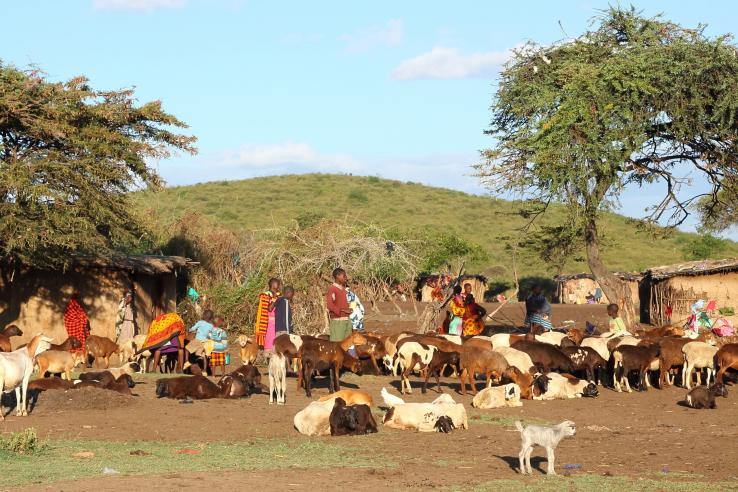Pastoralism in the COVID-19 era

This blog was cross-posted from the Center for Effective Global Action (CEGA) blog.
As has been the case for many of the world’s most vulnerable populations, the interventions required to reduce the spread of the COVID-19 pandemic have substantially disrupted the ability of pastoralists in Kenya to carry out their income-earning activities and threaten their economic security as a result. Kenyan pastoralists often inherit their livestock, or obtain their herds through breeding and exchanging. They maintain their livestock by herding them over many hundreds of miles before selling them in formal markets. Normally, these markets are vital for pastoralists — selling livestock is their primary way of earning income, and the markets also provide herders an opportunity to buy groceries. Unfortunately, formal markets also make pastoralists vulnerable to shutdowns during COVID-19. Unlike the informal, one-on-one livestock trade on which pastoralists have historically relied, formal markets bring many buyers and sellers together in one place, making markets a health risk during viral outbreaks.
In collaboration with the International Livestock Research Institute, and with funding from the Agricultural Technology Adoption Initiative (ATAI), CEGA and J-PAL’s flagship Agriculture program, we are using data from a crowdsourcing platform that collects information on the economic and health conditions of pastoral communities throughout Kenya to understand the effects of the crisis on this population. The platform was rolled out 5 months before the first case of COVID-19 was confirmed in Kenya and has allowed us to track how conditions have changed since the outbreak. While there are no confirmed cases of the virus in the approximately 100 pastoralist communities in our dataset, the pastoralists are majorly affected in other ways.
Consequences impacting pastoralists’ lives include:
Economic:
- Food prices: COVID-19 continues to disrupt global trade, increase transportation costs from the major port city, and lead to the closure of many local markets, which all contribute to a substantial increase in food prices.
- Food security: Pastoralists report significantly lower levels of milk consumption, an important indicator of food security in their communities.
- Closed markets: Pastoralists report that selling and buying livestock is much harder because formal markets have closed, so they increasingly rely on third-party brokers.
Mental health:
- Happiness levels: Pastoralists are almost 50 percent less likely to report being “very happy” post-COVID-19 than they were beforehand.
- Virus concerns: 85 percent of pastoralists state they are worried or very worried about the virus, citing the disruption to the livestock trade as the main threat.
Travel and conflict:
- Increased conflict: 45 percent of respondents state their region is less secure than it was before COVID-19.
- Increased travel: Pastoralists travel more to avoid conflict, even as they’re traveling less for other reasons.
There are interventions that can reduce the impact of COVID-19 disruptions while maintaining safe physical distancing, including, for instance, digital livestock marketing. While our data does not allow us to make conclusions about the optimal interventions for supporting pastoralists through the COVID-19 era, we do find that food-aid appears to be lessening household milk shortages, and pastoralists receiving cash transfers are not experiencing the same decline in happiness as those not receiving cash. As the COVID-19 outbreak in Kenya is not showing signs of slowing, and as the long dry season — which further threatens pastoralist well-being — is now well underway, we hope the evidence from our research can be used to ensure that sufficient aid is effectively delivered to these communities.
